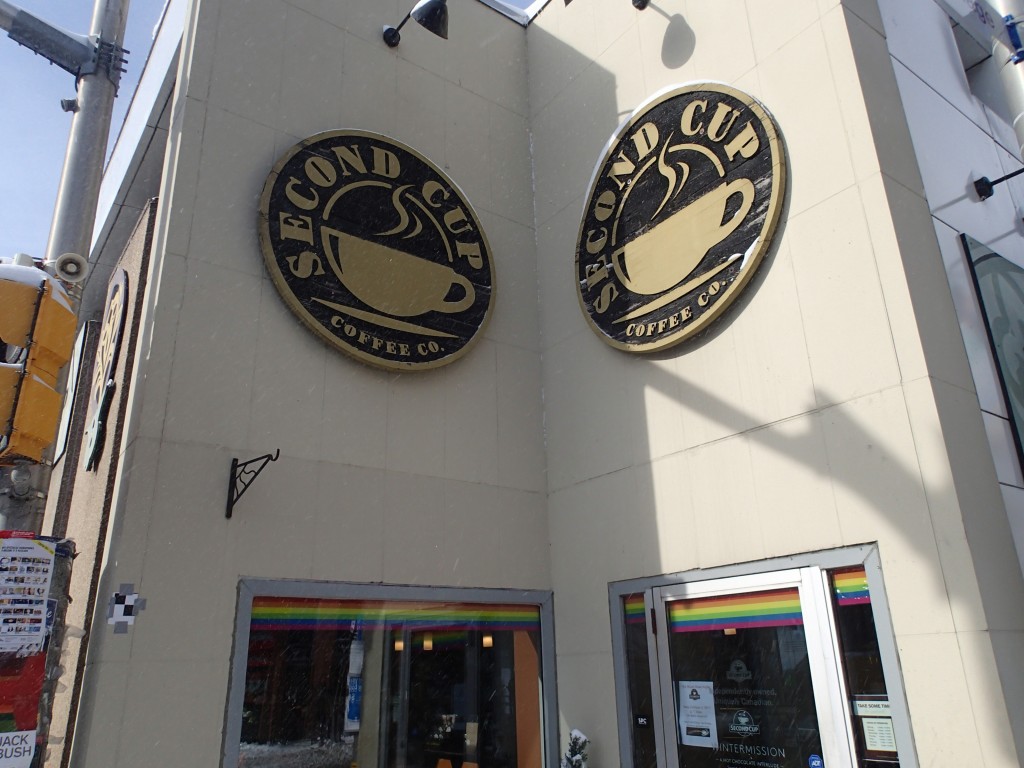
By: Laurene R. Jardin
January 30, 2016
Second Cup Ltd. is looking for a second coming.
In only one year the Canadian coffee company, lost more than $29 million in intangible assets.
According to its third quarter report, the company’s intangibles—i.e. value of goodwill, patents and trademarks—dropped 47 per cent from September 2013 to September 2014.
“An intangible asset is something you can’t touch,” explained Hilary Becker, an accounting professor at Carleton University and a member of the Certified General Accountants of Canada’s board of directors.
A publicly traded company calculates its tangible and intangible assets to estimate the company’s actual worth. Its worth is then measured not only in terms of cash, but also in brand value.
Second Cup’s loss can be attributed to a rebranding effort proposed by new CEO, Alix Box.
In a news release Box said that the company was in need of a makeover.
“This is a year of change for Second Cup. I am confident that we are taking the necessary steps to rebuild the company. I am optimistic that we will see significant performance improvements beginning next year,” said Box.
Competition.
“We are confident that we will win the hearts of Canadians,” said Box.
But in a competitive market like coffee no one can know for sure.

Becker believes one of the reasons Second Cup lowered its trademark value was because of competition from bigger companies with bigger capabilities.
“Second Cup once had a trademark that was worth something to them, but because of the competition from Starbucks, Tim Hortons and McDonalds—who just got into the coffee business—the value of Second Cup has gone down.”
“What it was worth, what they paid for, has gone down,” reiterated Becker.
While this does not impact the company in terms of cash, it is a worrisome figure for shareholders, who look to invest in a strong and likeable company.
Box announced a three-year strategic plan to renovate the company’s cafés and overall reputation.
“Is there room for more coffee shops? Absolutely. It’s all about location. Location, location, location,” said Michael Mulvey, a marketing professor at the University of Ottawa.
“If you can get the real estate in a prime place, where you know you can get visitors; well, that’s half the battle. Because people need coffee and to a certain extent they don’t care where it’s coming from,” said Mulvey.
Second Cup has almost 350 coffee shops.
Starbucks has over 1100 locations. Tim Hortons has more than 3500 and McDonalds over 1400—although not all carry McCafés.
Both Becker and Mulvey agree that to survive Second Cup has to find some sort of differentiator.
“When you look at Starbucks it’s a bit of an up-market. At Tim Hortons everybody feels at home. It’s very patriotic. You’re able to go there whether you’re an accountant or a garbage man”.
“Being Canadian isn’t enough for Second Cup,” said Becker, inferring that Tim Hortons has already taken over that niche market.
“Brands do get tired. Consumers get bored. And sometimes it’s really appropriate to revisit them and re-inject them with some ‘cool’, ” laughed Mulvey.
Bigger woes.
A devalued trademark is not good news. But, Becker says this is not the greatest worry for the Canadian coffee shop.
“What I would be most concerned about is that in store sales are decreasing. Which is probably what led them to close those underperforming stores,” he said.
Becker also hinted that the company’s move to cut dividends was “Not a good sign”.
